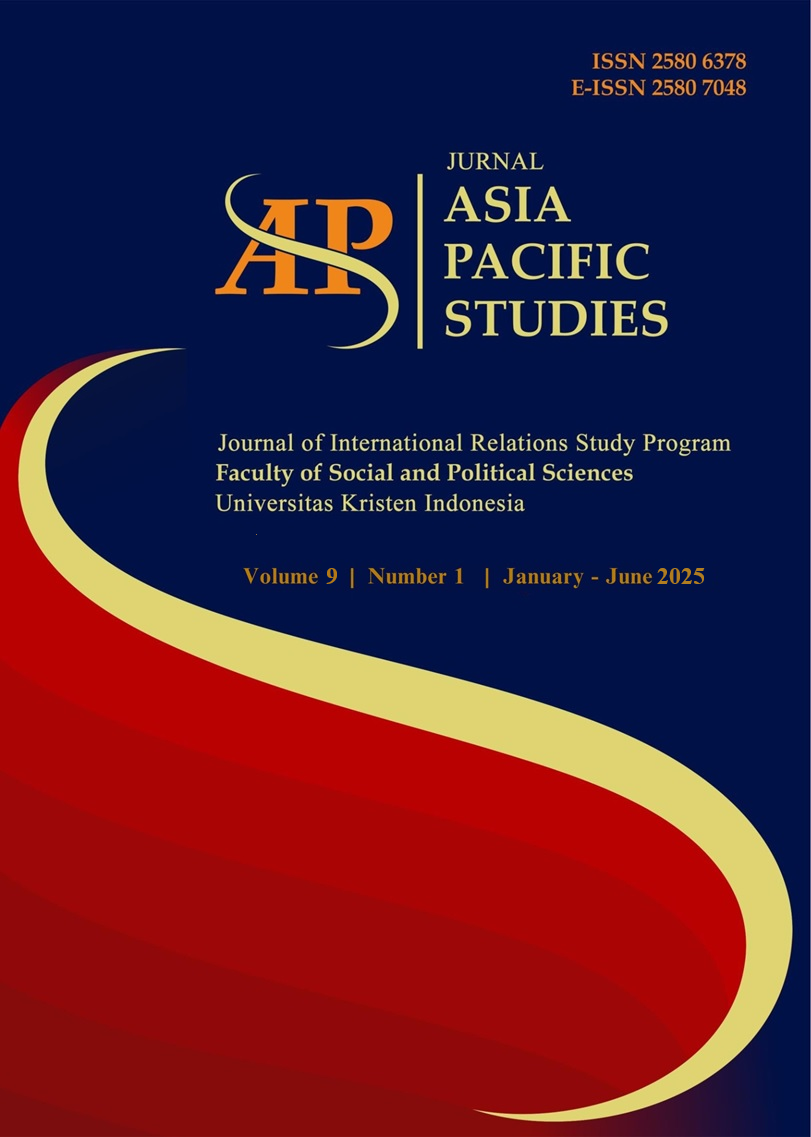THE CHANGE IN SOUTH KOREA'S FOREIGN POLICY TOWARDS ASEAN COUNTRIES THROUGH THE NEW SOUTHERN POLICY PLUS
DOI:
https://doi.org/10.33541/japs.v9i1.6616Abstract
This study identifies the factors influencing the evolution of South Korea's foreign policy towards ASEAN through the New Southern Policy Plus (NSPP). Despite the initial New Southern Policy's (NSP) successes, the Moon Jae-in administration introduced seven new initiatives for more focused cooperation. Employing foreign policy change theories, this research argues that the shift was driven by both international and domestic factors. Internationally, the Covid-19 pandemic presented strategic opportunities for South Korea to deepen its engagement with ASEAN. Domestically, liberal political leadership and policy entrepreneurs likely aligned internal preferences with the NSPP's objectives. Utilizing secondary data, the study concludes that these modifications represent 'adjustment change' and 'program change.' This indicates a shift in implementation strategies to better suit the changing regional context, without altering the fundamental goals of the original policy.













